Adaptive Learning System for Professional Development
Adaptive learning system for professional development is an intelligent, research-driven approach designed to enhance professional development in the construction and built environment sector. It tailors learning experiences to each individual's needs by dynamically adjusting content, assessment and feedback.
This study is funded by SkillsFuture Singapore under Workforce Development Applied Research Fund (WDARF) Grant [GA21-04]. The contributions of all participants and organisations who helped with this study and the support from colleagues from SkillsFuture Singapore and NUS Centre for Teaching, Learning and Technology are greatly appreciated.
Aim and objectives
To examine the effectiveness of using an adaptive learning approach to meet the diverse learning needs of professionals in an upskilling programme
Our approach
Overview of adaptive learning
A personalised approach that adjusts content, assessments, and feedback based on each learner’s progress and performance
Why It Matters for Professional Development
Adult learners bring diverse experiences and expertise. A one-size-fits-all approach often failed to achieve the intended learning outcomes. Adaptive learning solves this by:
- Delivering role-specific, industry-relevant content
- Closing skill gaps and supporting career progression
- Improving engagement and long-term retention
Key considerations for designing adaptive learning system for professional development
Adult learners and professionals have distinct characteristics that set them apart from traditional students. By acknowledging their diverse life experiences and unique learning needs, professional development courses can be designed to foster greater engagement and effectiveness.
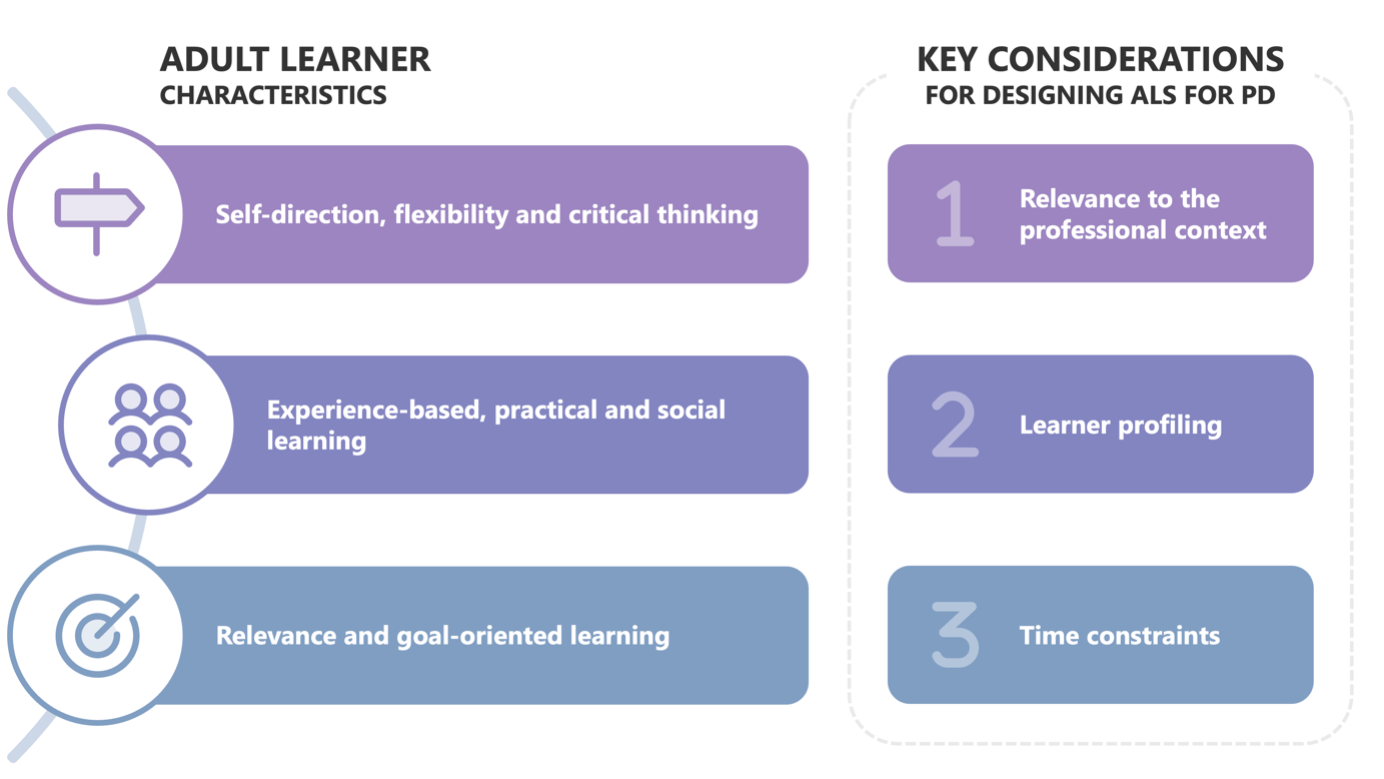
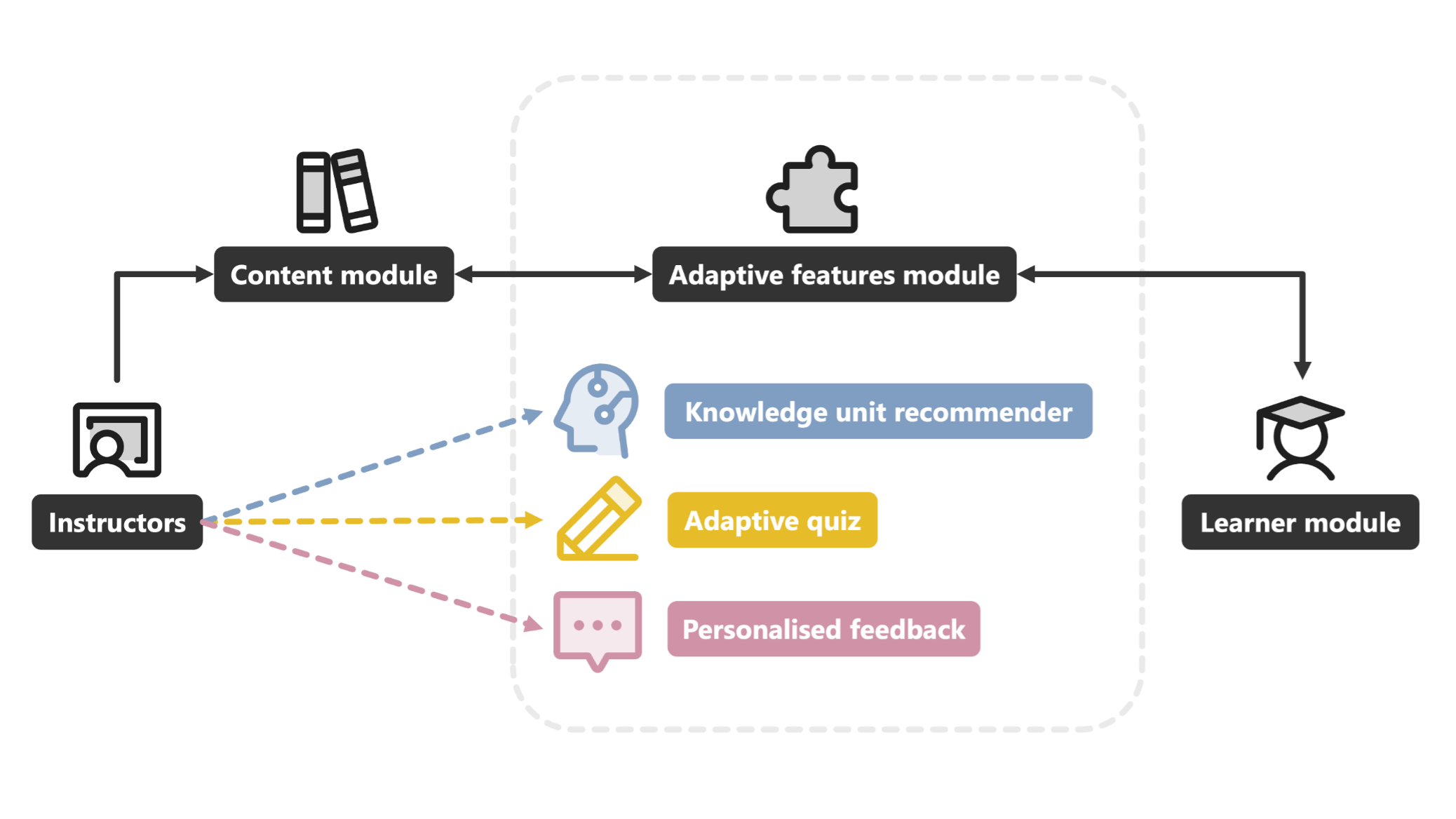
Key feature #1
Knowledge Unit Recommender (KUR)
KUR is an AI-driven recommendation system that creates personalised learning paths for professionals. It suggests the most relevant knowledge units (KUs) such as videos, quizzes, and reading materials based on the learner’s profile, performance, and preferences.
- Personalised learning paths: Adapts to each learner’s background, skill level, and goals, updating in real time based on progress
- AI-powered recommendations: Uses content-based, collaborative, and hybrid filtering to suggest the most relevant materials
- Structured knowledge graphs: Organises learning into knowledge units with clear objectives, difficulty levels, and time estimates
- Learner profiling: Builds and updates learner profiles with prior knowledge, preferences, and demographics
- Dynamic feedback loop: Continuously refines recommendations based on performance and provides clear reasoning for each path
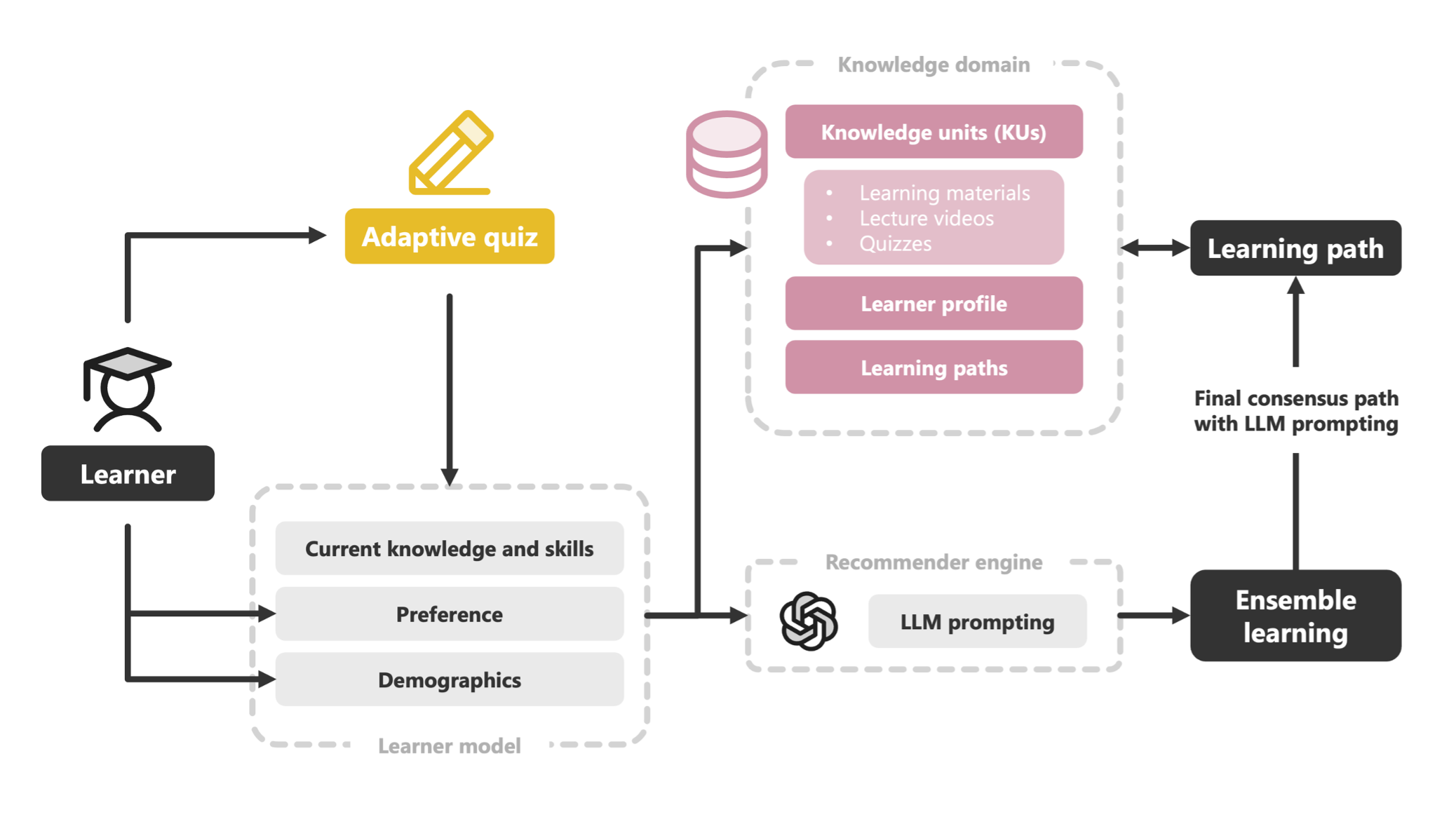
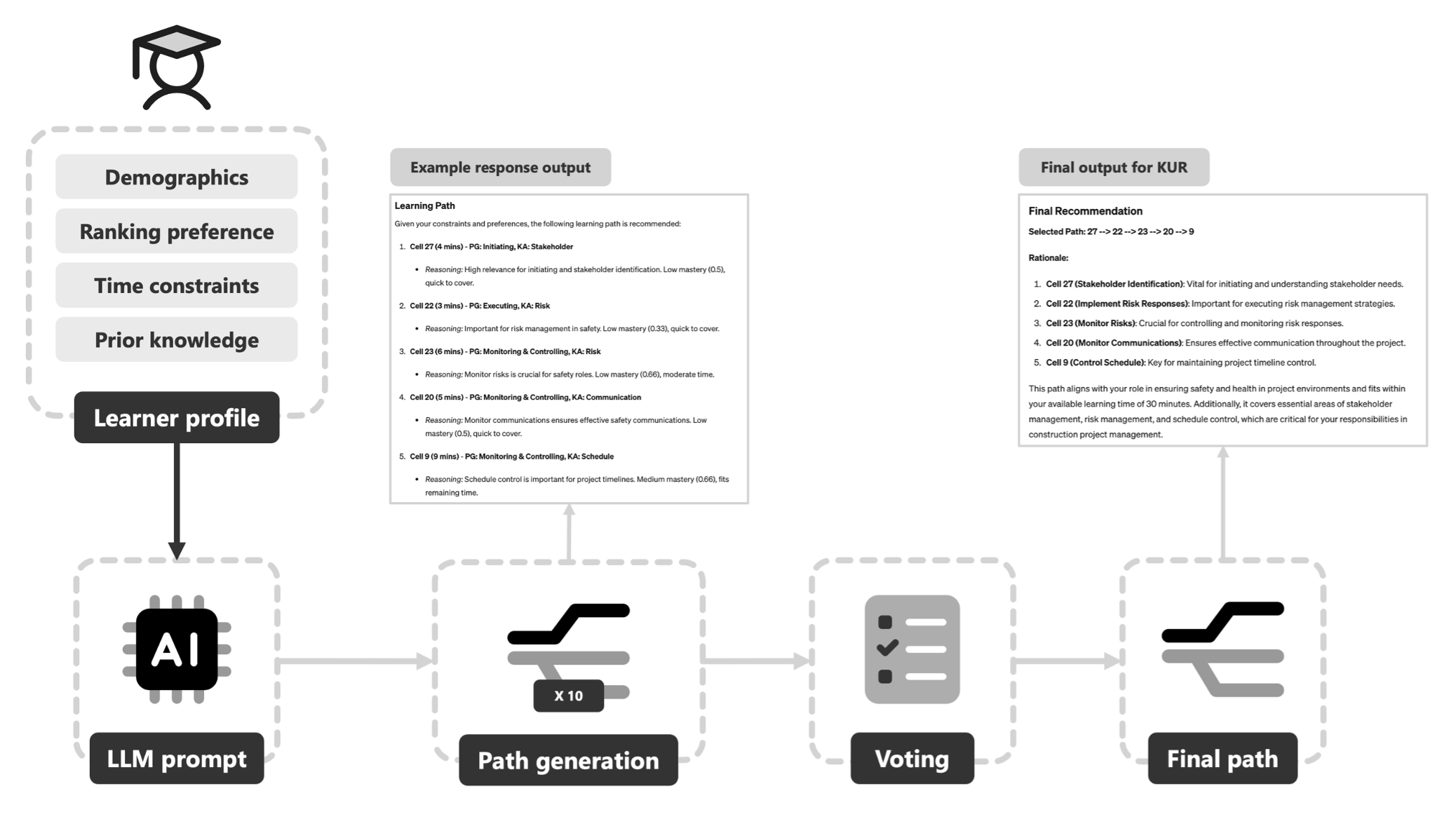
Key feature #2
Adaptive Quiz (AQ)
AQ is an intelligent, data-driven assessment tool that adapts in real time to a learner’s performance, creating a personalised testing experience that is more efficient than traditional quizzes.
- Real-time adaptation: Adjusts question difficulty dynamically to match learner level
- AI-driven selection: Picks the next best question for accurate, efficient assessment
- Tracks progress: Monitors performance, highlights knowledge gaps, and provides analytics
- Smart quiz bank: Tagged by topic and difficulty, with multiple question formats
- Flexible and personalised: Learners control quiz topics, duration, and get instant feedback
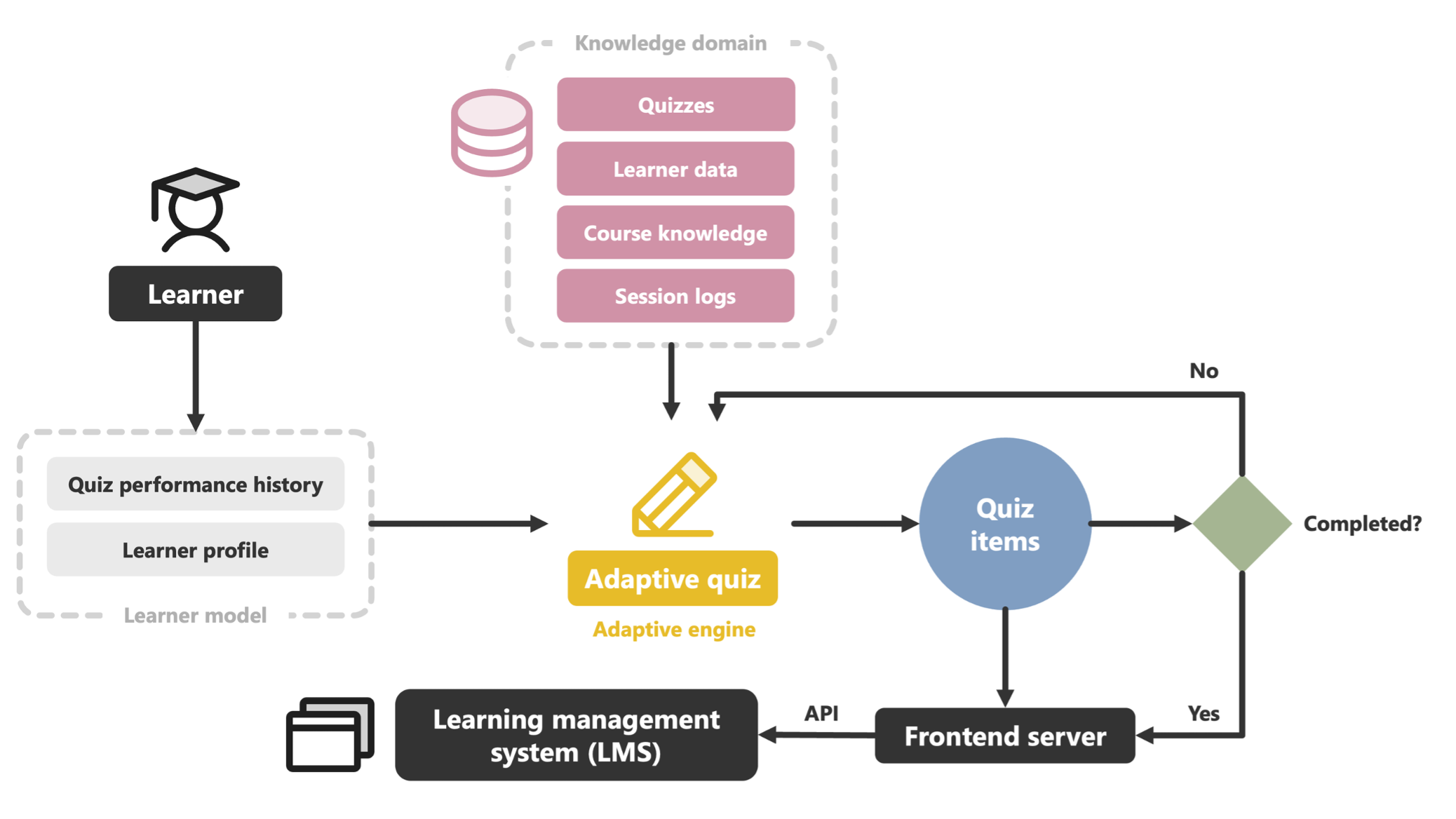
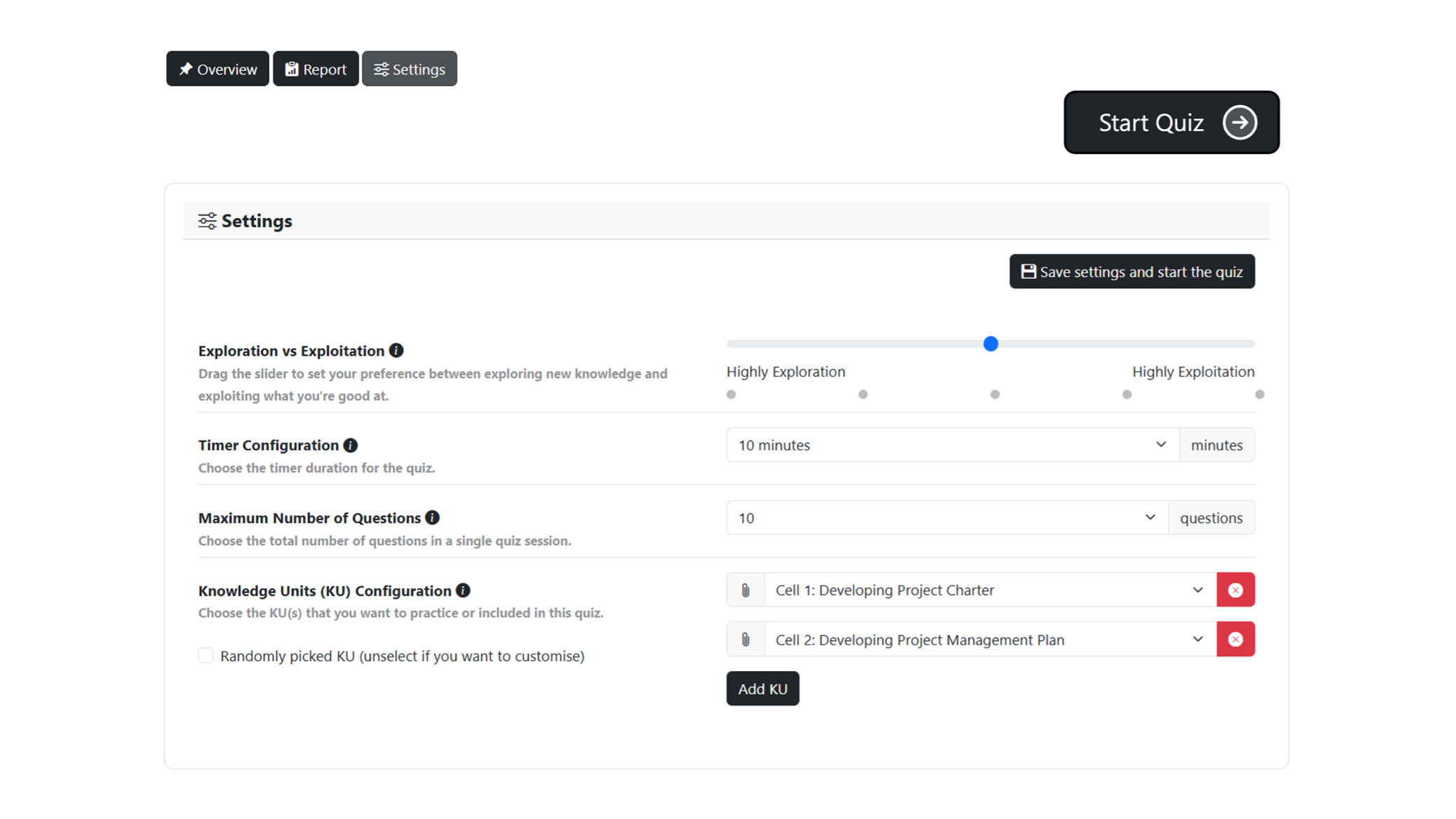
Key feature #3
Personalised Feedback (PF)
PF delivers learner-specific, actionable insights based on performance, progress, and engagement. It goes beyond generic feedback by using data analytics and AI to highlight strengths, identify skill gaps, and suggest next steps.
- AI-tailored insights: Feedback adapts to each learner’s performance and progress
- Learner-specific guidance: Highlights strengths, skill gaps, and next steps
- Instant and scalable: Automated delivery via LMS or email for any number of learners
- Improves over time: Continuously refined using learner data and feedback
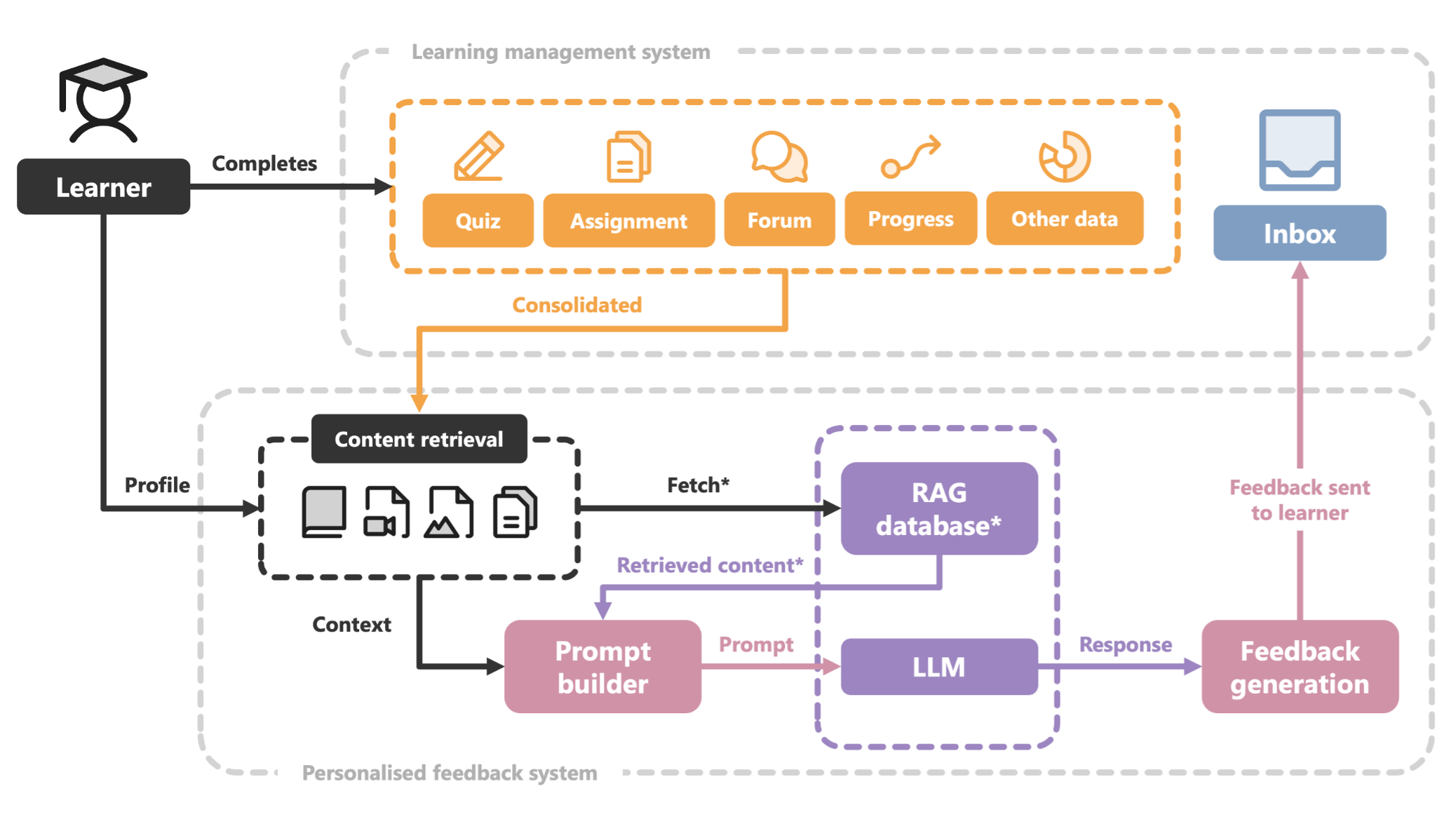
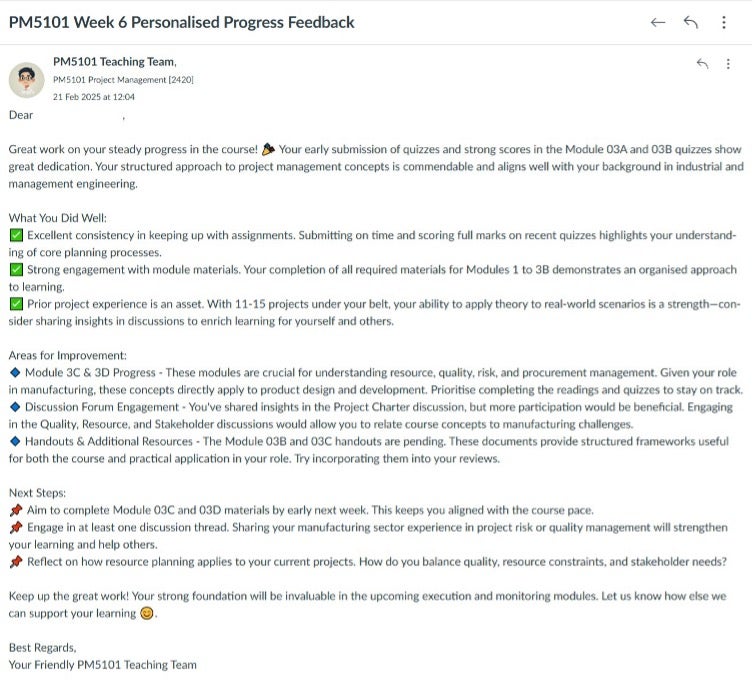
Toolkit
Deliver high-impact learning through adaptive experiences.
Adaptive Learning System for Professional Development Toolkit
A practical, research-backed guide to designing and implementing adaptive learning systems for professional development. This toolkit equips course developers, trainers, and learning administrators with step-by-step strategies to create personalised, scalable, and data-driven learning experiences.
What's inside?
This free toolkit provides:
- Introduction to the Adaptive Learning Framework, highlighting the core principles for building responsive learning environments
- Key adaptive features such as
- Knowledge Unit Recommender (KUR): Intelligent pathways for personalised content delivery
- Adaptive Quiz (AQ): Dynamic assessments that adjust in real time to learner performance
- Personalised Feedback (PF): AI-powered feedback tailored to individual progress and needs.
- Implementation guidelines with practical steps, templates, and algorithms for seamless integration with LMS platforms
- Best practices and checklists for scalability, learner engagement, and continuous improvement
Why use this Toolkit?
- Save time: Streamline course design with ready-to-use frameworks and templates
- Enhance engagement: Deliver content and assessments that adapt to each learner’s unique needs
- Improve learning outcomes: Close skill gaps with data-driven insights and personalised feedback
- Stay future-ready: Harness AI-driven methods for modern, flexible professional development
- Scalable and customisable: Designed for diverse industries and easy integration into existing systems.

